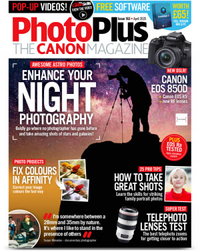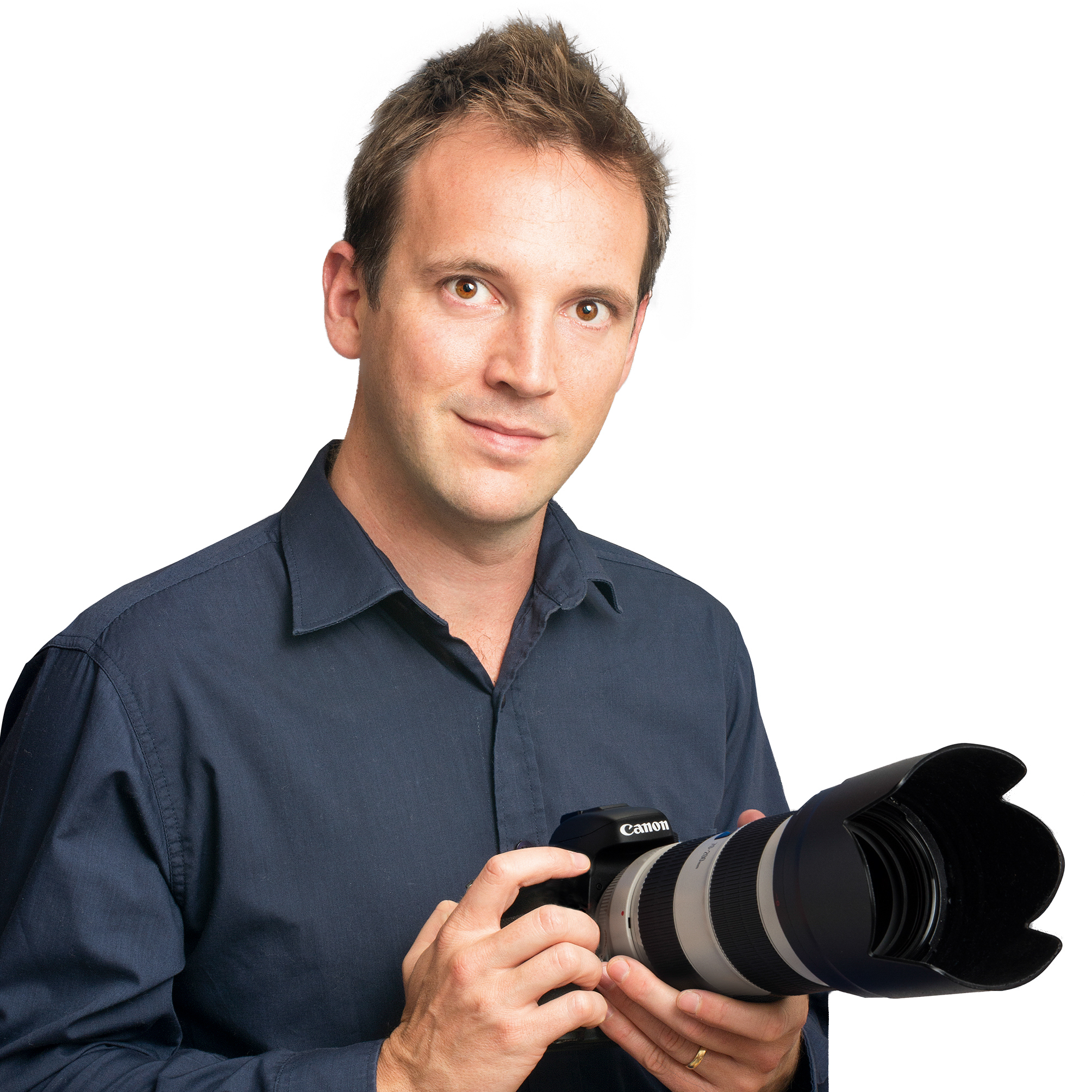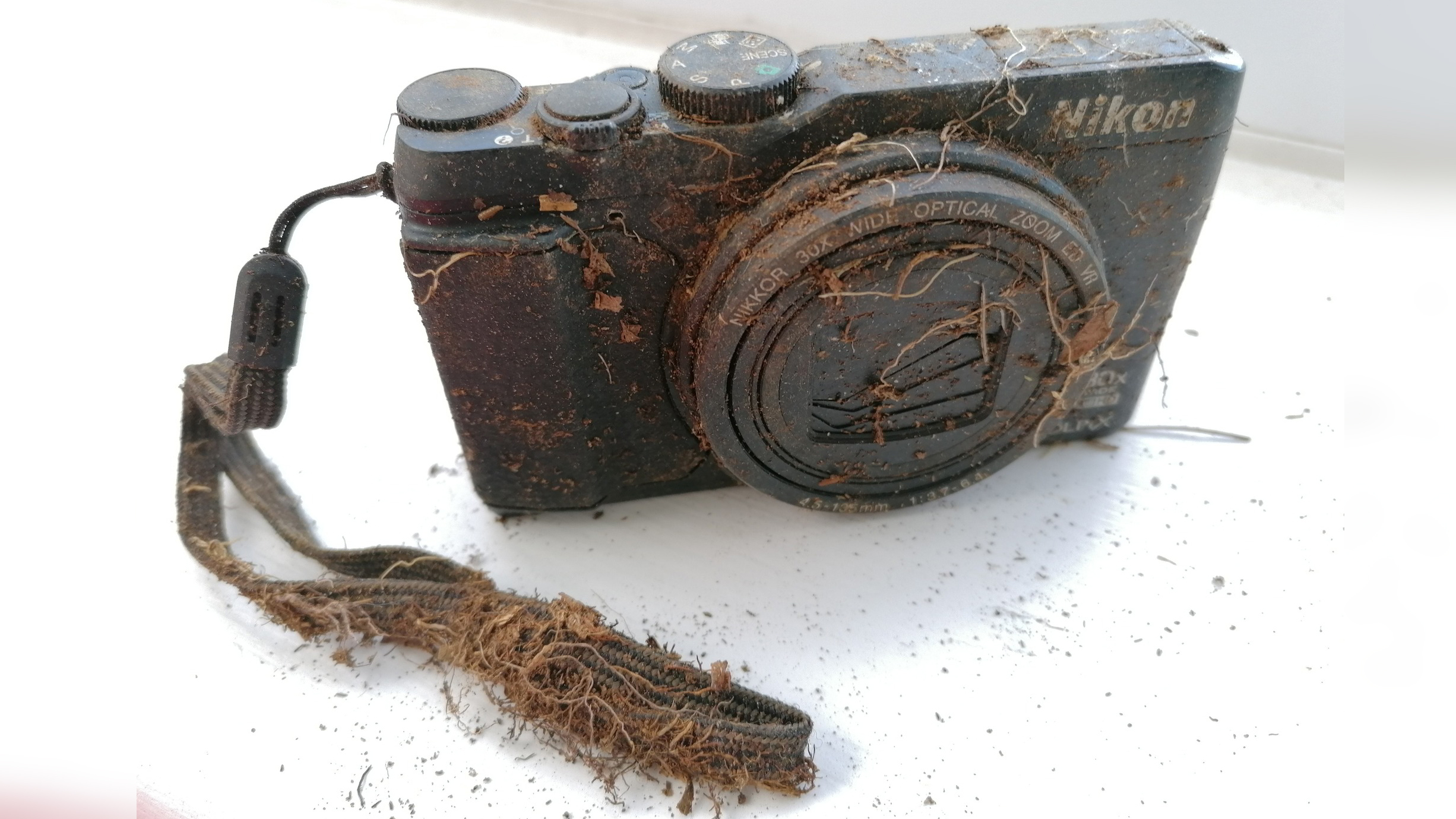Home photography ideas: Motion blur portraiture
Liven up your portraits by adding motion blur in the shot!
Watch video: Home photography ideas – Motion blur portraiture
Photography projects at home
• Home photography ideas
Useful home photography kit
• Best tripods
• Best lighting kits
• Best reflectors
• Best macro lenses
Blurred motion is one of the most exciting visual effects that photographers have at our disposal. That magic combination of sharp and soft detail never fails to impress – and, as any landscape photographer knows, it works wonders shooting moving water or clouds.
It’s not something normally associated with portraits, though, where the aim is usually to freeze the action. However, sometimes a bit of motion blur can be used to great effect in your people shots.
• 10 best online photography courses
• Get more photoshoot ideas
The basic technique here is very simple. We need our subject to stay perfectly still while objects around them are in motion. If we use a slightly longer shutter speed than normal, then the motion is recorded as blur. A patterned umbrella works perfectly; gently twirled, it creates beautiful circular streaks of color.
This can be a bit of a balancing act, though, because the longer the exposure, the harder it is for our subject to stay completely still.
For a close-up, a shutter speed somewhere around 1/10 sec is about as slow as we can get away with. At shutter speeds like this the motion comes out as blur, but as well as subject movement there’s also a danger of camera shake. A tripod helps, but we can also improve our hit rate by using the high-speed continuous drive mode.
We’ll explain how to set up your camera, and also offer a few additional ideas on how you can lift your portraits with beautiful blurred motion.
Blur a moving background
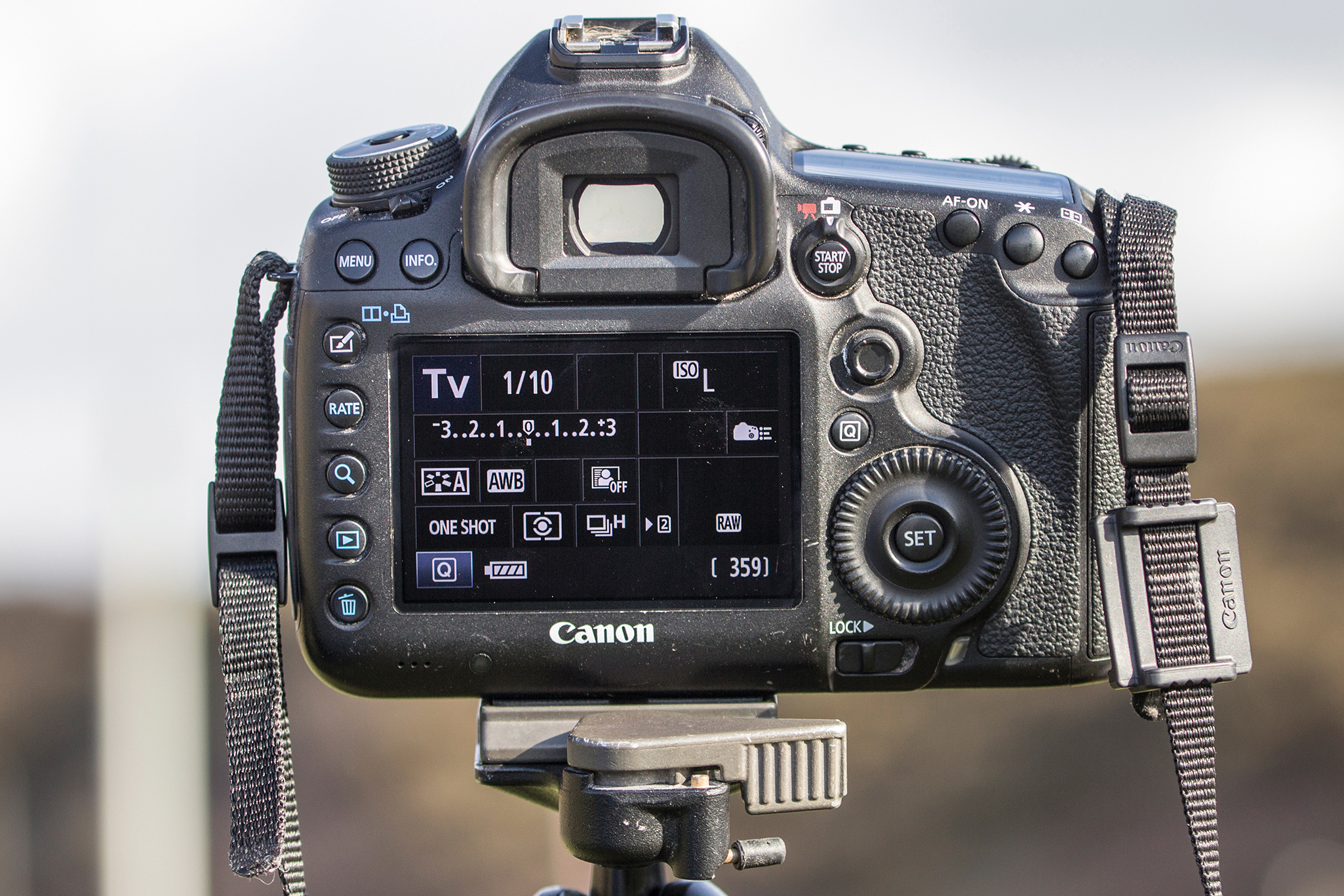
01 Slow it down
Set up your camera on a tripod and set it to shutter priority mode. Dial the shutter speed down to around 1/10 sec, and then take the ISO down as low as it can go – ISO100 is probably the lowest, but if you have a LOW setting then use that.
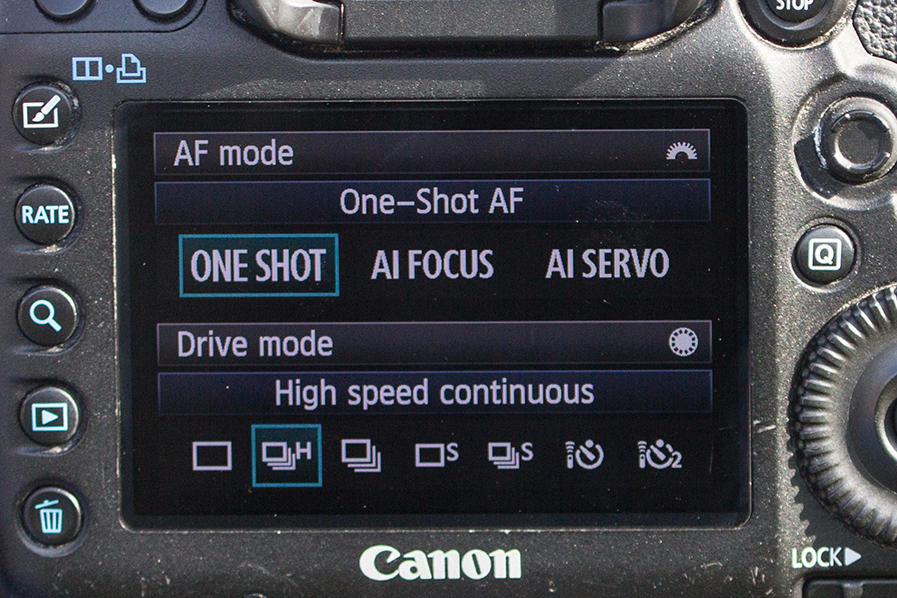
02 Improve your hit rate
This technique can be hit and miss. You’re bound to end up with a few soft shots, but can increase your chances of a perfectly sharp one by using high-speed continuous drive mode and shooting in bursts.
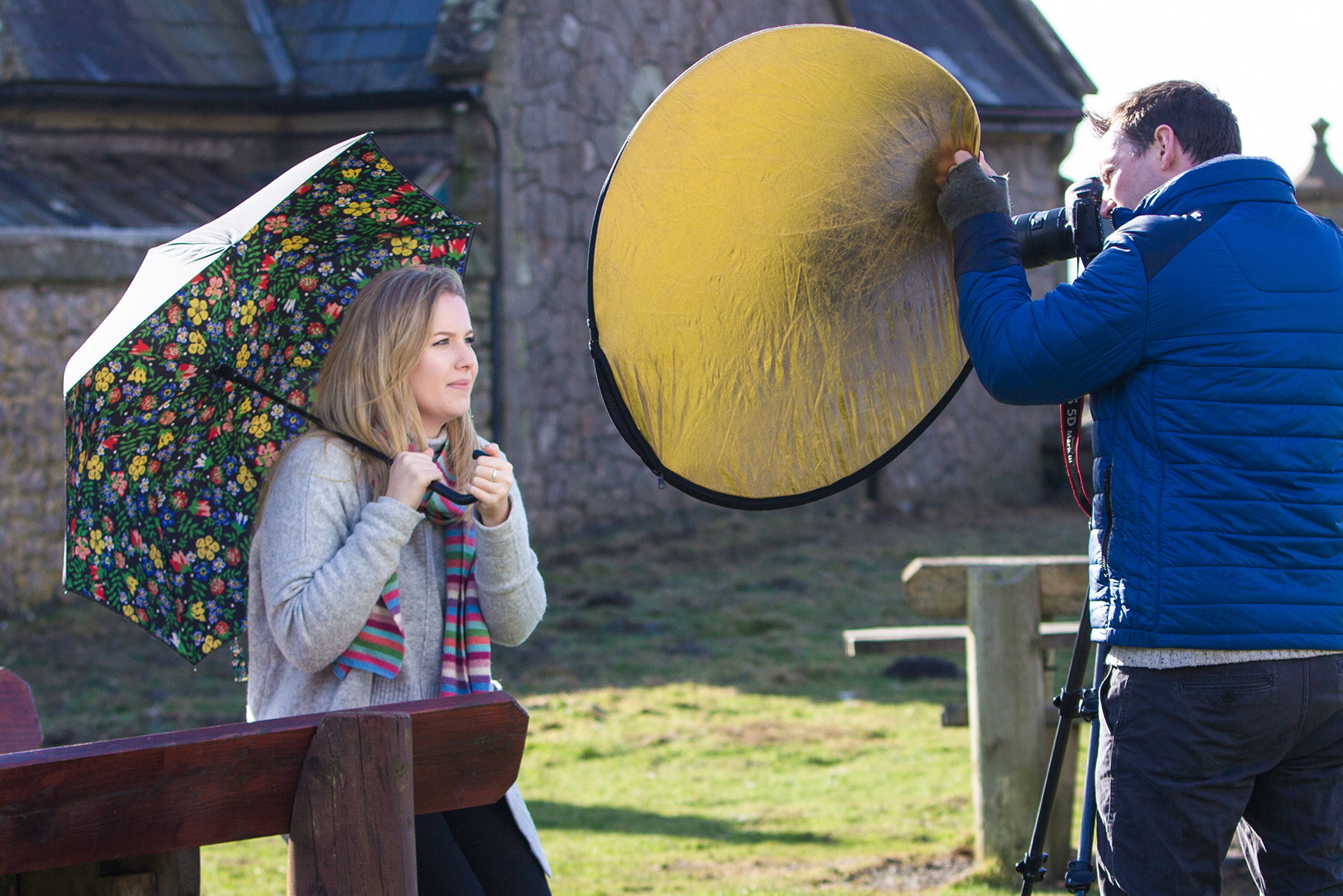
03 Pose the subject
Position your subject in the shade or with their back to the sun, and get them to lean against something solid to help them stay still. If you have one, use a reflector to bounce light into the face.
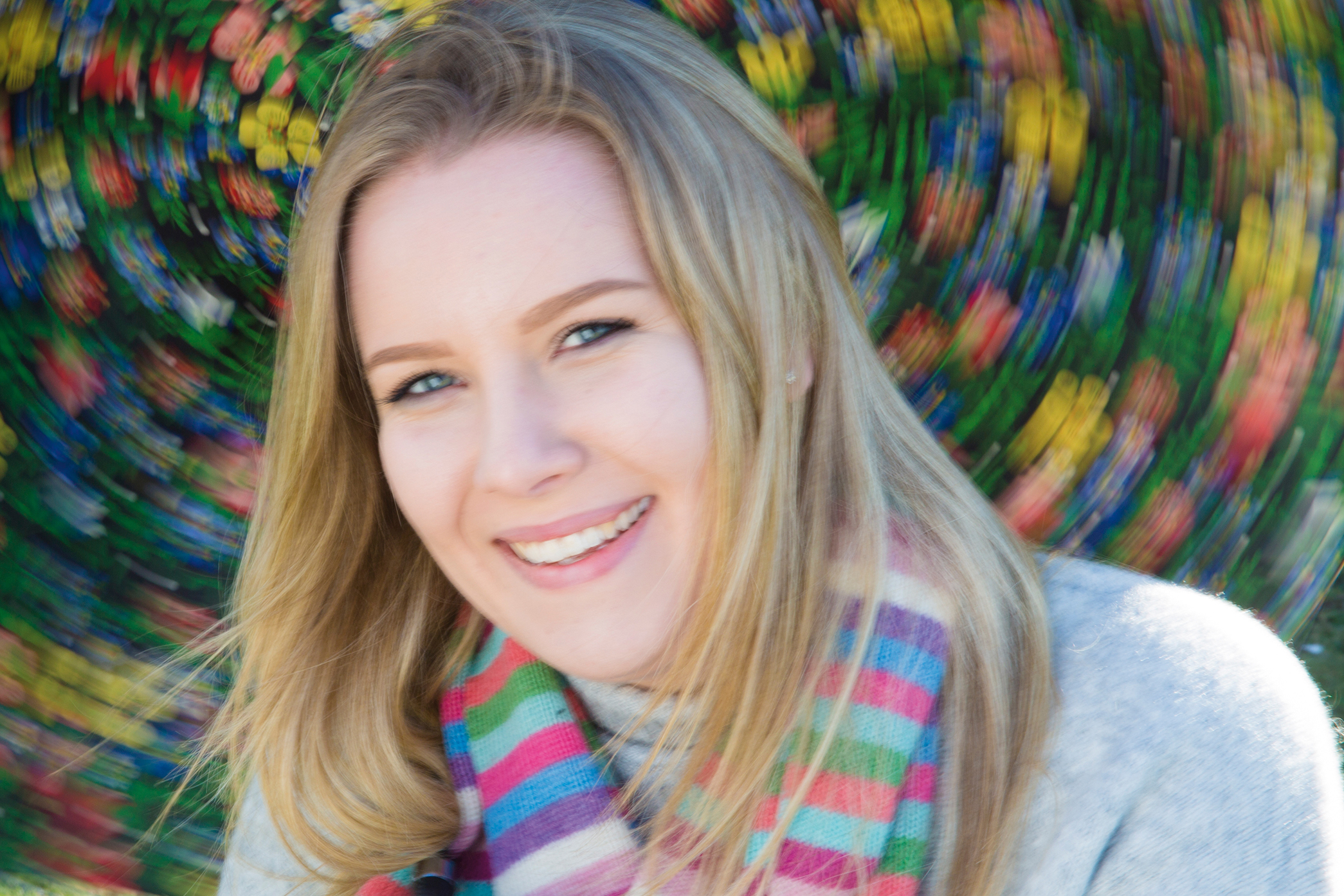
04 Play statues
With everything set up, it’s down to your subject to stay as still as possible while twirling the umbrella. Shoot in bursts then review your shots and zoom in close to check that the eyes are pin sharp. While a portrait lens is usually the best bet for portrait pictures, a standard zoom can be useful to frame your subject while wielding a reflector.
4 ideas for motion blur portraits
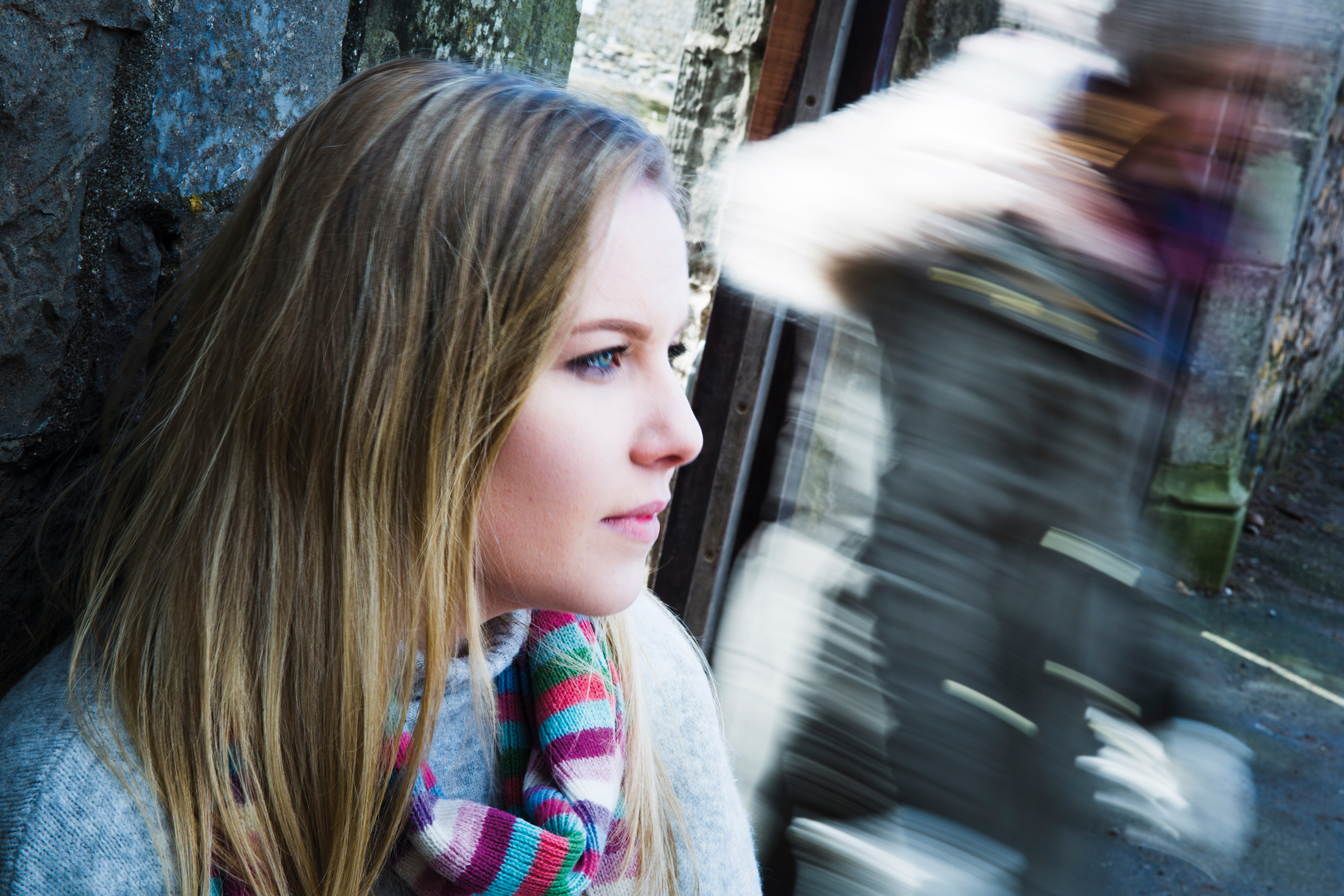
01 Include passers-by
Ask the subject to stay as still as possible while somebody passes by move in the background, which can create a mood of isolation or loneliness. It’s easier for your subject to stay still if they are sat down or leaning against something.
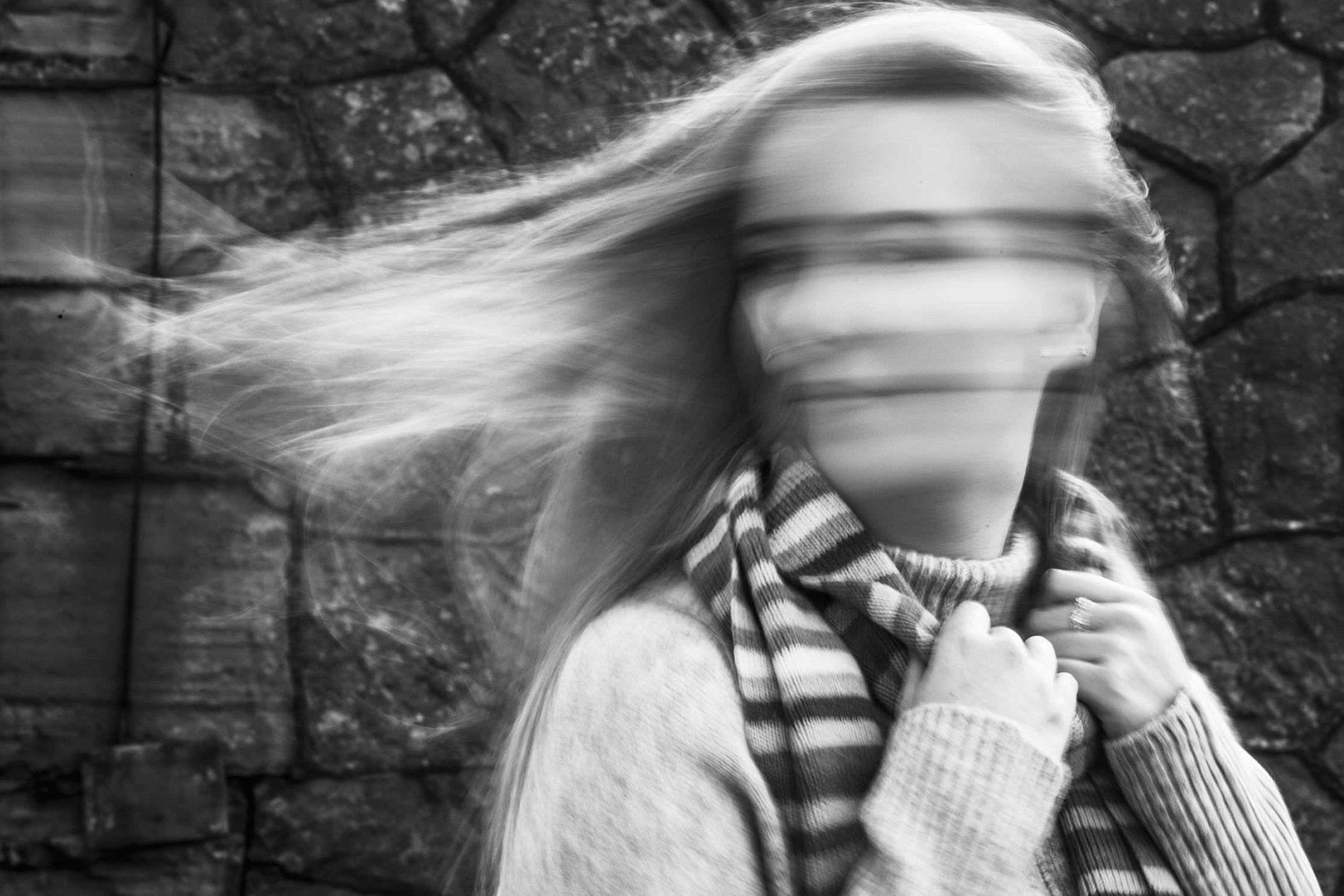
02 A ghostly head
Rather than moving other parts of the scene, why not ask your subject to move part of their body while keeping the rest still. Whipping the head from side to side creates a rather unsettling, ghostly portrait. Black and white helps simplify the image.
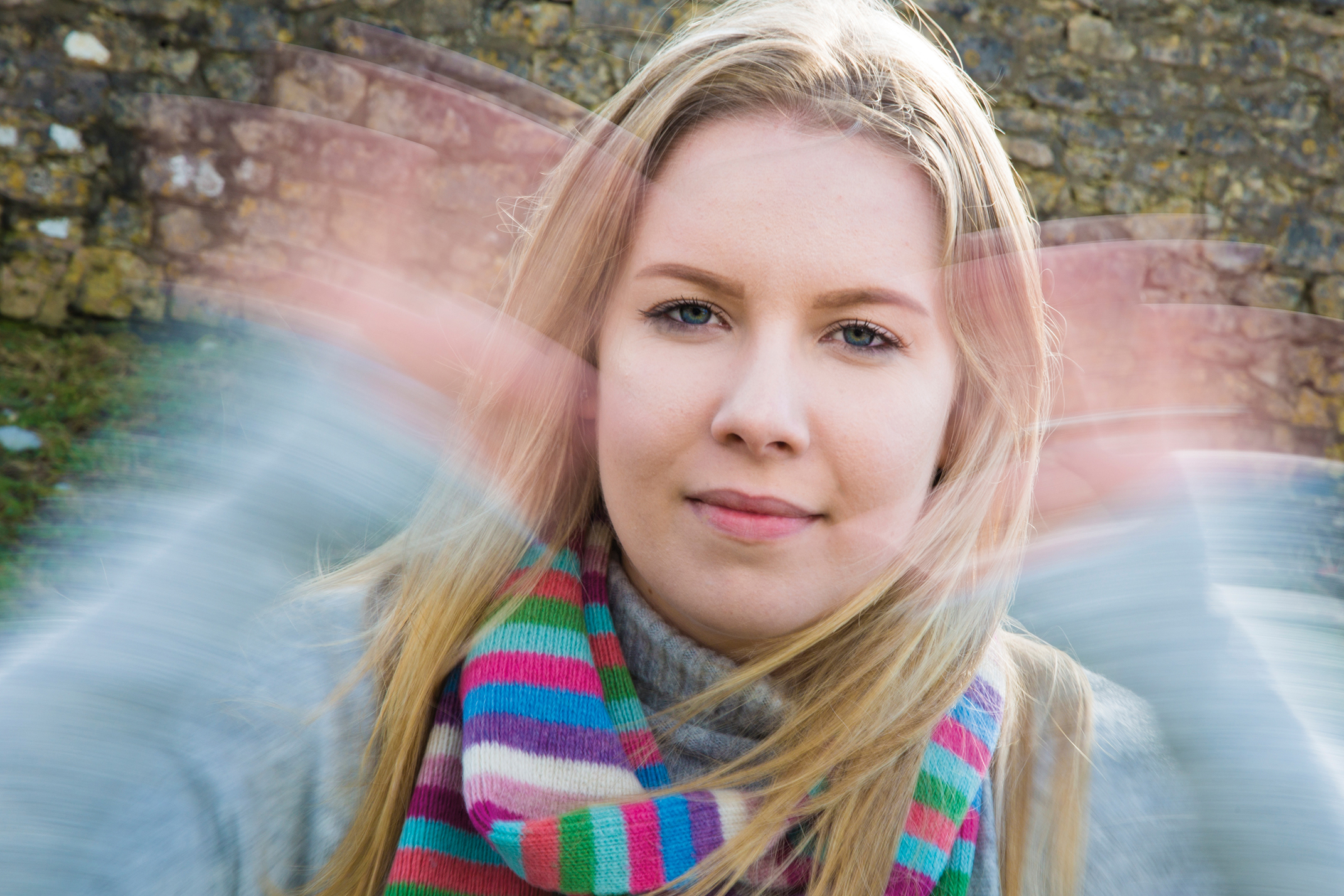
03 Move the limbs
Get your subject to move their hands, limbs or other body parts while you shoot. The movement creates an interesting mix of sharp and soft detail. It can also work well for action or sports photography by conveying a sense of speed and action.
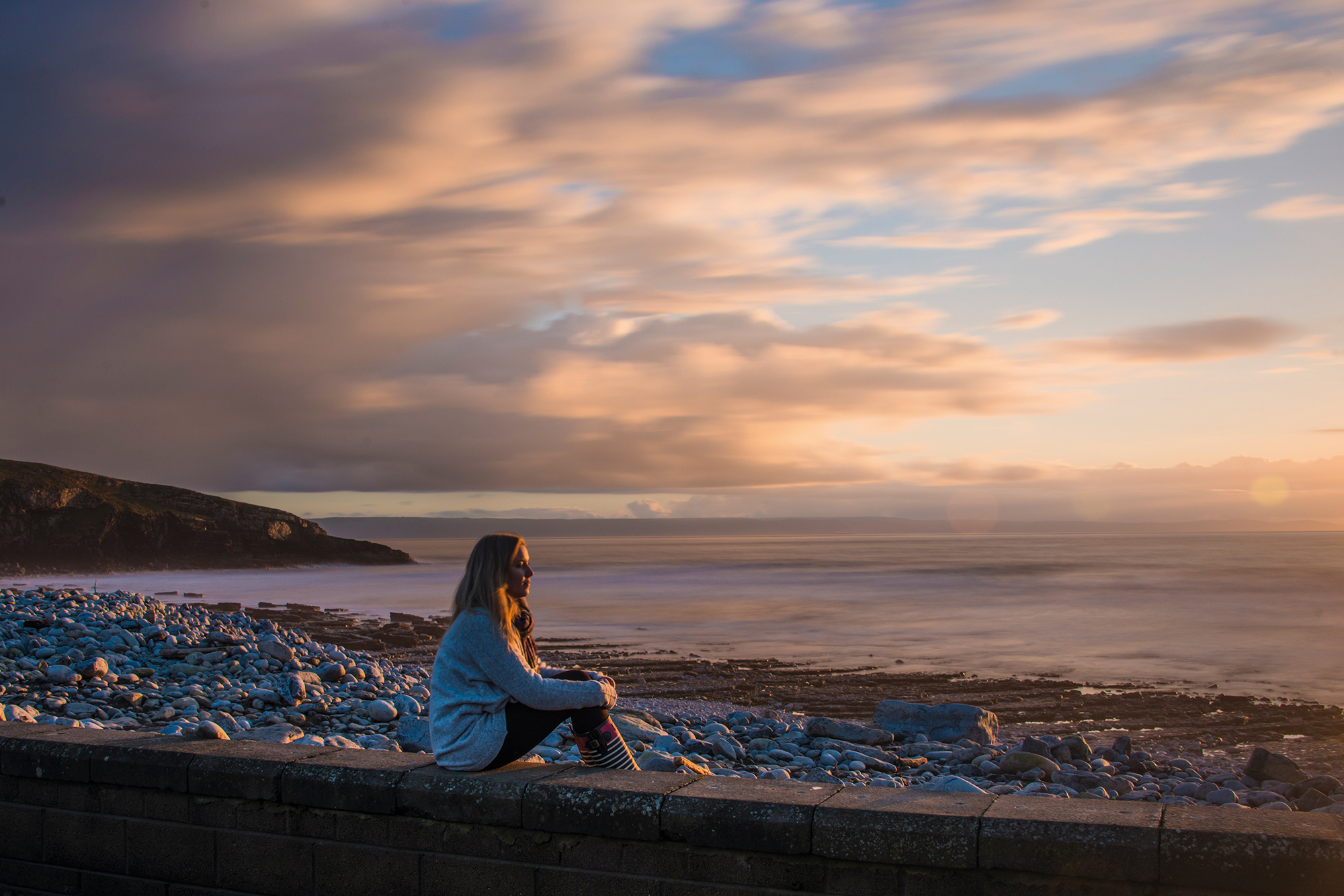
04 Blur the clouds
If the subject is smaller in the frame you can often get away with a longer exposure time. Here, a 30-second exposure results in motion blur in the clouds and water. We used a 10-stop neutral density filter to make the extra-long shutter speed possible.
PhotoPlus: The Canon Magazine is the world's only monthly newsstand title that's 100% devoted to Canon, so you can be sure the magazine is completely relevant to your system.
Read more:
The best camera for portraits: cameras and lenses perfect for portraits
The best lens for portraits: our pick of the best 85mm lenses right now
The best reflectors for photography: control your lighting the easy way!
Portrait photography how to: essential and practical portrait tips
Get the Digital Camera World Newsletter
The best camera deals, reviews, product advice, and unmissable photography news, direct to your inbox!
The lead technique writer on Digital Camera Magazine, PhotoPlus: The Canon Magazine and N-Photo: The Nikon Magazine, James is a fantastic general practice photographer with an enviable array of skills across every genre of photography.
Whether it's flash photography techniques like stroboscopic portraits, astrophotography projects like photographing the Northern Lights, or turning sound into art by making paint dance on a set of speakers, James' tutorials and projects are as creative as they are enjoyable.
He's also a wizard at the dark arts of Photoshop, Lightroom and Affinity Photo, and is capable of some genuine black magic in the digital darkroom, making him one of the leading authorities on photo editing software and techniques.
